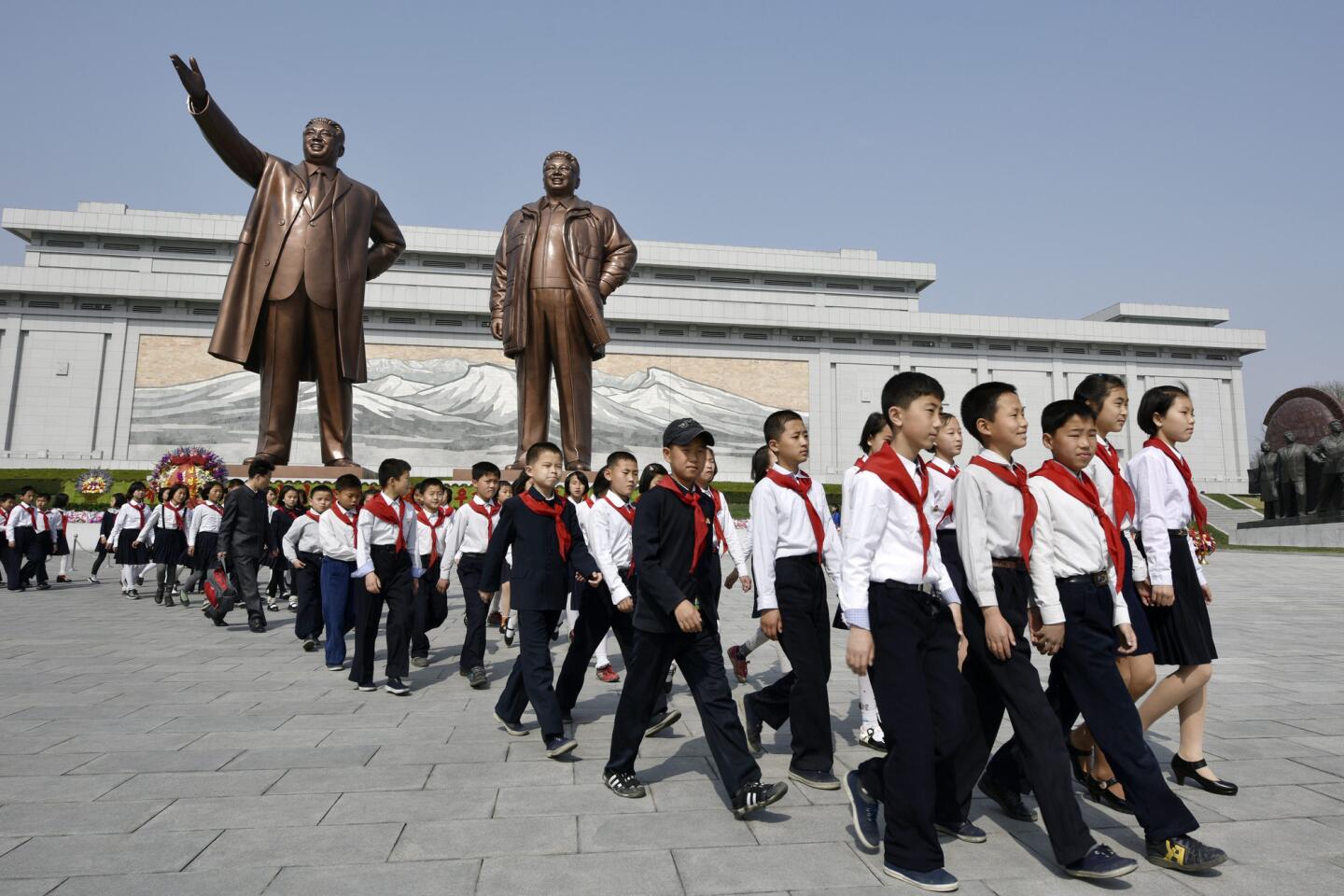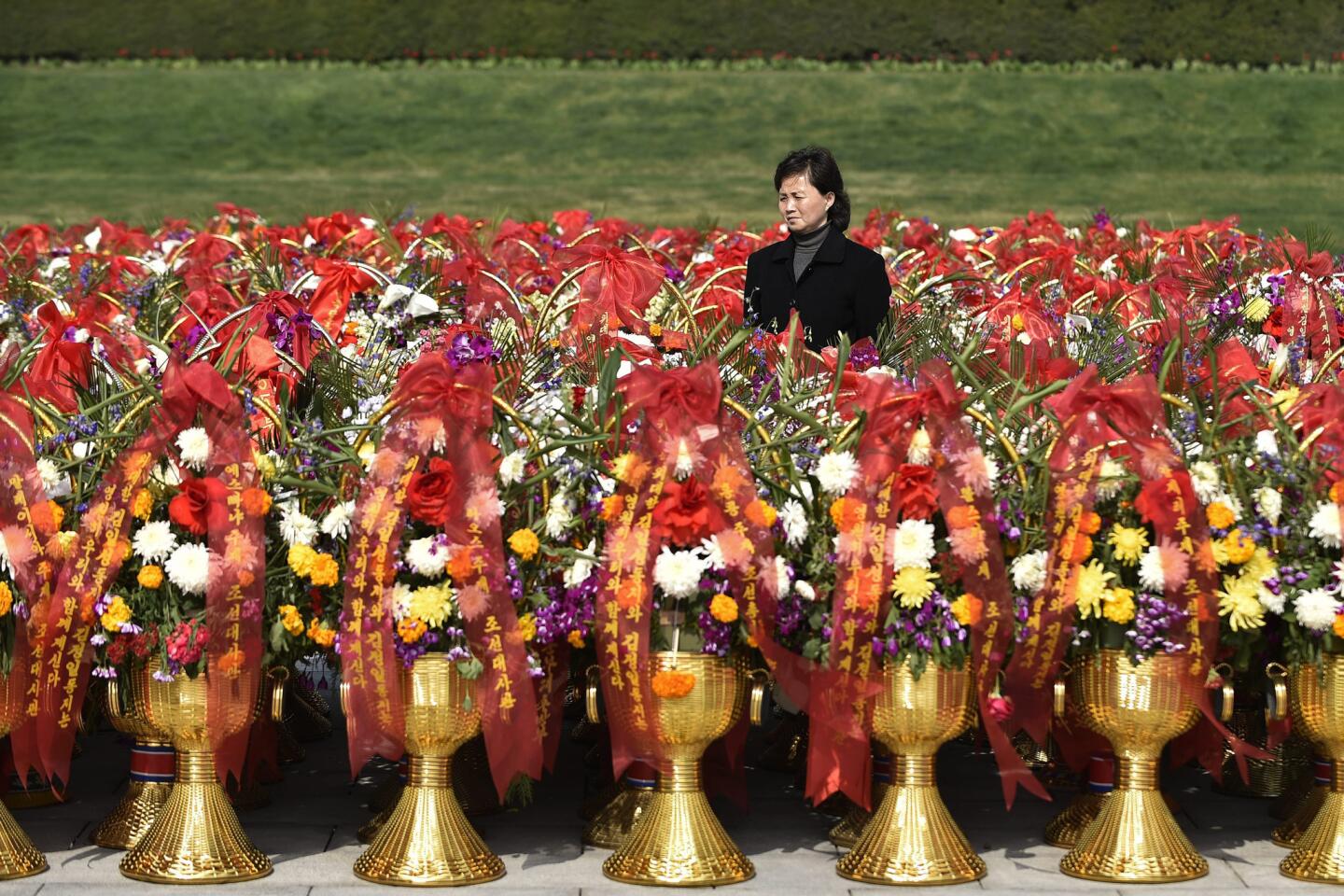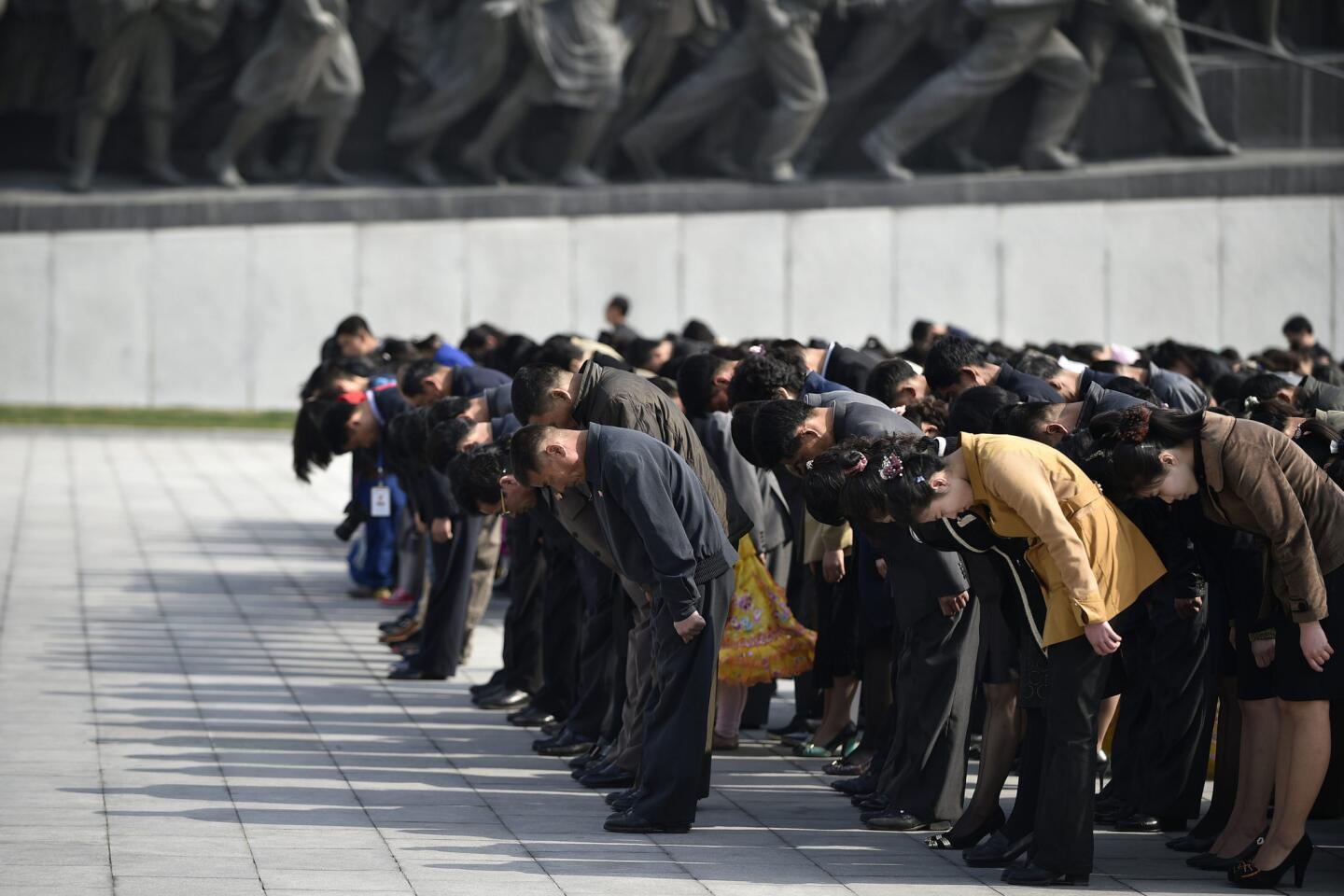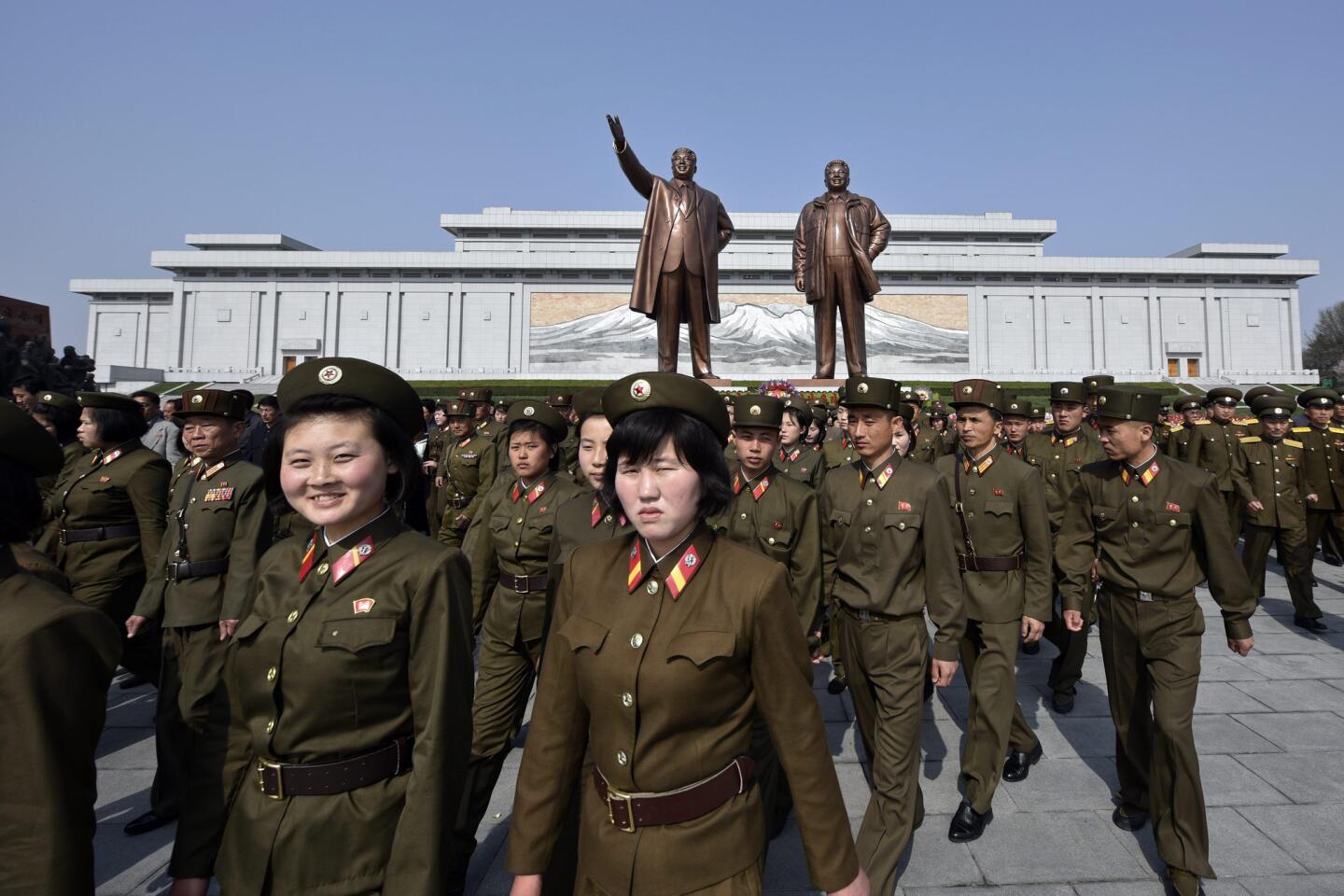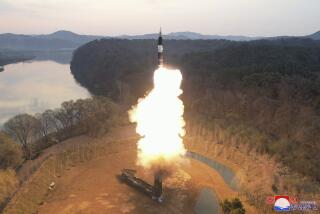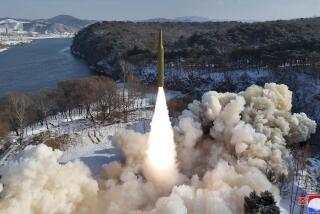North Korea’s birthday blast fizzles as missile test to celebrate founder apparently fails
A North Korea missile launch meant to celebrate its founder’s birthday has apparently failed, South Korean and U.S. officials said Friday, an embarrassing setback in what was reportedly the inaugural test of a new, powerful mid-range missile.
The U.S. and South Korean officials provided few details, including the type of missile. But South Korea’s Yonhap news agency carried an unsourced report that a “Musudan” missile, which could one day be capable of reaching far-off U.S. military bases in Asia and the Pacific, exploded in the air a few seconds after liftoff.
Despite the failure, the North has another Musudan loaded on a mobile launcher and Pyongyang will likely fire it, according to South Korean and U.S. authorities, Yonhap reported.
The launch comes as the two Koreas trade threats amid Pyongyang’s anger over annual South Korean-U.S. military drills that North Korea calls a rehearsal for an invasion. The North has recently fired a slew of missiles and artillery shells into the sea in an apparent protest against the drills.
The surge in belligerent rhetoric and nuclear and missile activity in the North may also be linked to leader Kim Jong Un’s preparations for a major ruling party meeting next month that analysts believe he will use to further solidify his autocratic rule. Some believe that Kim may try to use the country’s claims of recent nuclear and missile success as a way to turn domestic focus toward tackling the country’s abysmal economy.
A senior U.S. defense official, speaking on condition of anonymity because the official wasn’t authorized to comment publicly, said the U.S. Strategic Command systems have detected and tracked what officials assessed as a failed North Korean missile launch.
“We strongly condemn North Korea’s missile test in violation of U.N. Security Council Resolutions, which explicitly prohibit North Korea’s use of ballistic missile technology,” the official said.
The North American Aerospace Defense Command said the missile launched from North Korea did not pose a threat to North America.
The South’s Defense Ministry said it wasn’t immediately known whether the missile fired from an eastern costal area Friday morning was a short-range or mid-range missile.
The ministry refused to say why it believes the North Korean launch appeared to be a failure.
The North’s launch came amid speculation in the South that its rival was preparing to test a medium-range missile with a range of 3,500 kilometers (2,180 miles) — enough to reach U.S. military installments in Japan and Guam. Foreign experts have nicknamed the missile “Musudan” after the village in the northeast where North Korea has a launchpad.
North Korea has never flight-tested a Musudan, though it unveiled the missile during a 2010 military parade. South Korean defense officials said North Korea has deployed Musudan missiles since 2007.
Friday is the birthday anniversary of the late Kim Il Sung, the current leader’s grandfather and the nation’s founder. North Korea has occasionally used such celebrations to stage nuclear or missile tests that outsiders consider provocations.
In the North Korean capital, Pyongyang, citizens in formal clothing lined up to bow deeply before huge statues of Kim Il Sung and Kim Jong Il, his son and the father of Kim Jong Un, and laid brightly colored flowers at the statues’ feet.
North Korea has unnerved the international community this year with an escalating campaign of belligerence. This includes a nuclear test in January, its fourth, and a long-range rocket launch in February, as well as nuclear threats against the United States and Seoul.
There is debate among analysts about the exact state of the North’s nuclear capabilities — many believe Pyongyang has a handful of crude nuclear bombs — but each nuclear and missile test pushes them farther along in their goal of a nuclear-armed arsenal of long-range missiles.
ALSO
U.S. report paints bleak picture of human rights around the globe
There’s no doubt now that Zika virus causes rare birth defects, CDC says
President Obama visits CIA headquarters as U.S. steps up attacks against Islamic State
More to Read
Sign up for Essential California
The most important California stories and recommendations in your inbox every morning.
You may occasionally receive promotional content from the Los Angeles Times.
